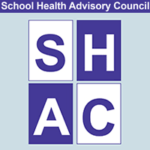HOME
SISD RELATED WEBSITES
REQUIRED POSTINGS
Campuses
STAFF RESOURCES
General Guidelines for When not to Report to School
Good attendance at school is important for a child to do well. However, there will be times when your child is too ill to attend. Either they are contagious to the other students or they feel so poorly that they would gain nothing from being at school. The following symptoms can help you determine whether your child should stay home.
Awaiting Results of a Strep Throat Culture
Rather than exposing your child’s classmates to infection, wait until 24-hour culture results are in before returning your child to school. If it is negative, and your child is fever free, you can always bring your child in late.
Conjunctivitis (Pink Eye)
Following a diagnosis of conjunctivitis, the child may not return to school until after 24 hours the first dose of prescribed medication is administered.
Diarrhea and vomiting
If your child has repeated episodes of diarrhea and vomiting, a rash or general weakness, consult a doctor and keep your child out of school until the illness passes.
Head Lice
Students determined to have head lice infestation or the presence of adult lice or eggs (nits) are not permitted in school until treatment is received and all nits are removed.
Fever
Children who have a temperature of 100 degrees or more need to remain at home. Any fever within the past 24 hours indicates the need to stay home. Fever is an important symptom; when it occurs along with a sore throat, an earache, nausea, listlessness, or a rash, our child may be carrying something very contagious. Most pediatricians advise parents to keep children home during a fever and for an additional 24 hours after the fever has passed (without giving fever-reducing medicine such as Tylenol or Motrin).
Rash
Rashes and infected sores: Need to be checked out and diagnosed and treated by a doctor. Many skin rashes are very contagious (impetigo, scabies, chickenpox, rash may indicate Fifths Disease or Hand and Mouth disease). Student once diagnosed needs to be free of rash. In the case of impetigo, they need to receive treatment for 24 hours and they can return to school. (Preferably with scabbed over sores covered with clothes or band-aids).
Runny Nose/Cold Symptoms
A bad cough or cold symptoms can indicate a severe cold, bronchitis, flu, or even pneumonia. Some children suffer one cold after another all winter long and a run-of-the-mill cold should not be a reason to miss school. However, if your child is not acting “right” or has difficulty breathing, it could be serious. Check with your pediatrician right away.
Prolonged Complaint of Headache, Stomach Ache, Toothache, or Earache
You Suspect Any Type of Illness/Infection
Should your child have symptoms of illness not mentioned here which may or may not be contagious, feel free to call the school nurse to run the symptoms by her when deciding whether to send your child to school at 409-429-3464, Ext: 2340
A sick child cannot learn effectively and is unable to participate in classes in a meaningful way. Keeping a sick child home prevents the spread of illness in the school and allows the child opportunity to rest and recover.

School Health Advisory Council (SHAC) Meeting Dates
09-05-2023
11-9-2023
2-26-2024
4-8-2024